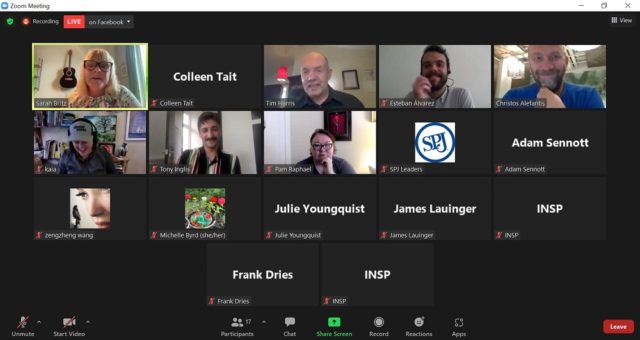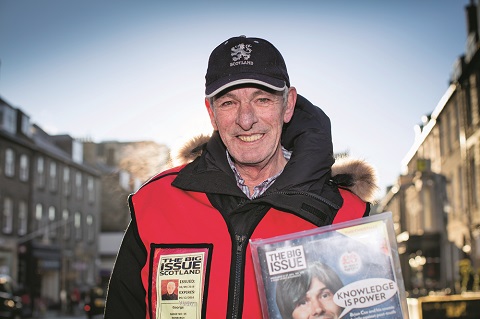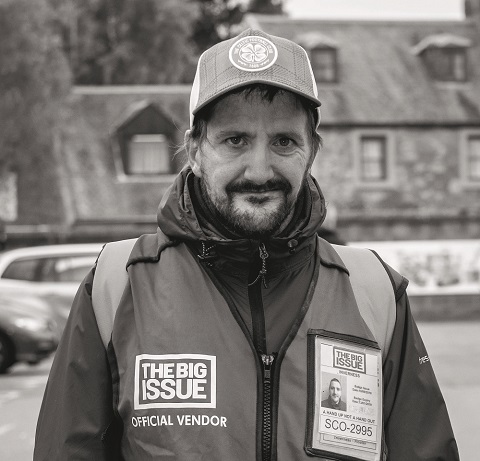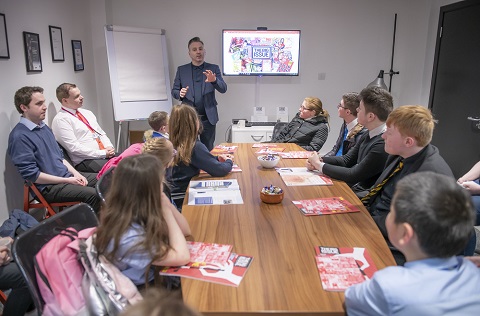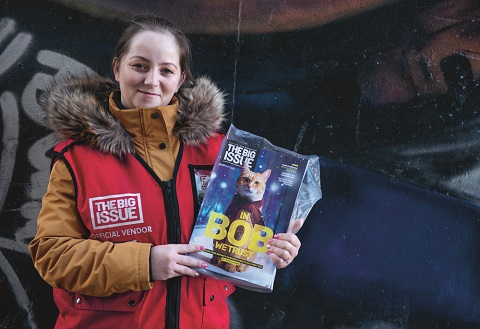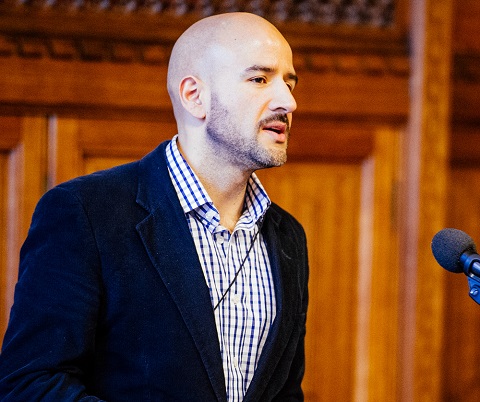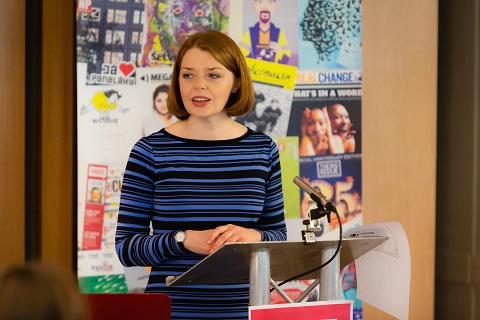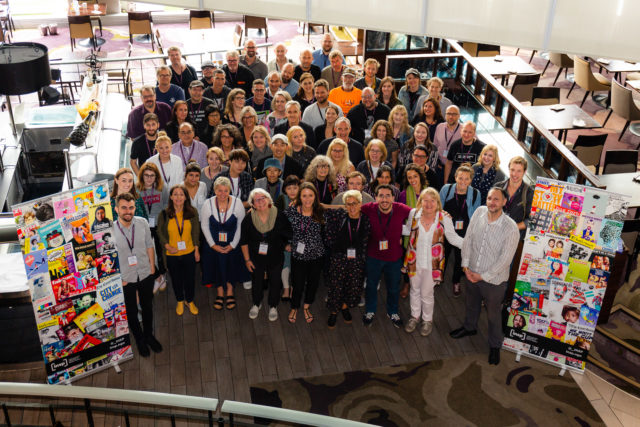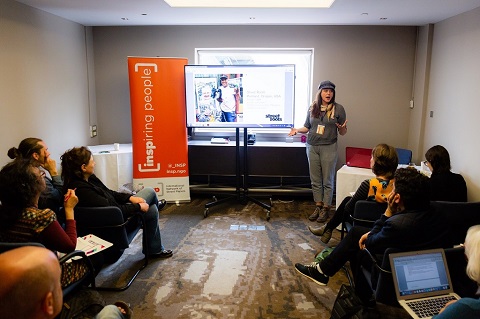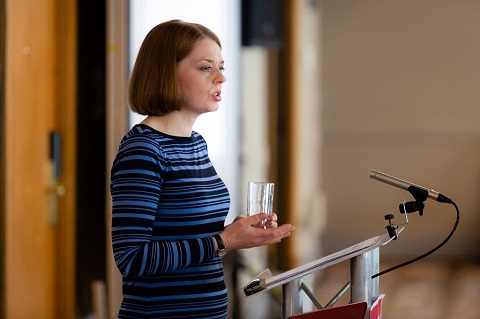Inverness-born sisters Chloe and Lucy Knott didn’t set out to be social entrepreneurs. But the perfect storm behind their burgeoning business, Transplant Toys, is a story of the family’s battle against the odds and a determination to raise awareness of one of the UK’s most startling health statistics.
In early August, 22-year-old Chloe – who was diagnosed with chronic kidney disease at birth – received a kidney transplant from to her mum, Laura. Chloe is one of the lucky ones.
Figures released this week to mark the UK’s Organ Donation Week (5-11 September) show that on average three people die every day in need of a transplant, due to the shortage of people willing to donate. There are more than 6,500 people currently on the transplant waiting list.
It’s a statistic that Chloe is fighting to draw attention to, with her personal story and an ingenious crafty project.

Chloe moved to Glasgow aged 18, but a couple of years later her health deteriorated. It took 14 months of tests to determine whether her mum would be a suitable donor. Laura lost four stone to get in prime health as they waited for the results.
Meanwhile, dialysis was having a major impact on Chloe’s life. “During that time I was working from eight in the morning until half past four in the afternoon,” Chloe says. “I’d connect the machine up at half eight at night, get off the machine at half six in the morning, get up, go to work and start dialysis again at five o’clock.”
As her dialysis reached 70 hours per week, Chloe made the decision to hand in her resignation at work.
Waiting for test results, Chloe spotted a project in Japan called Second Life Toys. They collect secondhand soft toys, and fix them up through a ‘transplant’ from other donor toys. The metaphor is a way to boost awareness around organ donation.
Bringing a similar craft project to the UK became something positive that Chloe could focus on, before and after her recuperation, and particularly in times when she’s been unable to leave the house.
Recalling the moment she first saw the idea online, Chloe says, “I said to Lucy, ‘I don’t think the UK has anything similar.’ We then said we could easily do that. So we started going to a sewing club, Say It Ain’t Sew, in Glasgow’s West End. It took us weeks to actually learn how to sew properly. At first we were hopeless.”
Undeterred by their lack of sewing skills, the sisters came up with the name Transplant Toys, created some simple branding and within 48 hours of their Facebook page going live they had 300 likes. From there, the first batch of Transplant Toys was made available via an online shop. They sold out within hours.

“It’s been like that ever since,” says Chloe. “We get support from a lot of people who have had transplants and orders for people who have cystic fibrosis and are in living in the hospital. We send wee personalised notes with the toys if we know who they are for. They send us back a wee notes and a photo.”
When Chloe’s transplant date arrived, her kidney function was as low as 2%. Despite coming to the end of the longest wait of her life, reality also set in. “Many people think once you get that call that you have a donor match everything is going to be fine. But from that time through to a new kidney being put in your body it’s a big thing. My mum was told that there was always the chance she might not wake up.”
Post-transplant, two charities close to Chloe’s heart split the profits from the sales of Transplant Toys, as Chloe explains, “I contacted Kidney Support Scotland, who as a charity take quite a lot of kids away who have been on dialysis. They had even offered me two weeks on a caravan holiday.”
The second is Scotland’s leading Cystic Fibrosis charity, The Butterfly Trust, recommended to Chloe by a friend. Following a quick conversation on the phone, the charity was delighted to become beneficiaries.
County Durham-based mother and cystic fibrosis sufferer Laura Black was one of the first to buy a toy from Chloe and Lucy. She felt a real connection with the project. She says, “As someone with cystic fibrosis waiting for a double-lung transplant, and trying to explain that procedure to my four-year-old daughter, I think this is a lovely idea and a great way to raise awareness and charity funds.”
Chloe is clear about the goals she and Lucy share in raising organ donation awareness. Agreeing with the goals of Organ Donation Awareness Week, she’d like to see the UK move to a system where people are automatically enrolled to be donors – and have to opt-out if they want to be removed from the list. Presently, the UK operates a opt-in system, which means people must specifically register with the NHS to become a donor.
“Hopefully Transplant Toys as an idea will go quite big one day and in 10, 30, 50 years time we won’t have waiting lists, or by then an opt-out system,” says Chloe. “A lot of older people don’t know how to sign up to be a donor. If there was an opt-out system people would be more connected.”

Even where people are registered to donate, their family will have final say when the time comes. The NHS estimates that since 2010, 1,200 people have missed out on a potentially life-saving transplant due to cases where the family has overridden the deceased person’s wishes.
“I don’t think families should be able to override that,” Chloe adds. “If people want to be organ donors they should be. A lot of people think it’s a really sad thing to talk about but three children die every day just waiting for their transplant call. It’s mind-blowing.”
Chloe and Lucy are now looking for a sponsor who can help them to increase the number of Transplant Toys available for sale in each of their future online shops. The last three had up to 20 toys each and sold out within hours, so the ambitious, young social entrepreneurs can see the potential for growth.
Looking to the future, Chloe is aware that in the first three months to a year, her new kidney could fail at any time. Once past this period, she will be on steroids for the rest of her life. Despite those harsh realities, Chloe’s mantra remains upbeat: “If you have a positive mind, your body will follow.”
“I’d love to be an ambassador for organ donation and get the word out,” she says. “If we can raise awareness that gets just a few people to sign up to be organ donors, that could be a few lives saved.”
To find out more about Transplant Toys, find them on Facebook, Twitter and Instagram.





